African Rosewood, also known as Mukula, has a natural reddish-pink color and is often used to make billiard cues, knife handles, handicrafts, etc. When polished, this wood is often compared to a diamond. Because of its inherent beauty, this wood is also quite highly valued, around $7-8/feet. In 2022, 16 West African countries and some countries in East and South Africa have issued a ban on the trade of this wood, which makes this wood even more rare and the price of this wood increases over time. So why is African Rosewood so expensive? Let’s find out in this article.
Table of Contents
Characteristics of African Rosewood
African Rosewood, also known by its scientific name Pterocarpus Erinaceus, is a rare wood native to the tropical forests of West and Central Africa, especially countries such as Nigeria, Ghana, and Côte d’Ivoire. This wood is notable for its unique color and superior quality, making it a popular material in many industries, from furniture, musical instruments, to high-end handicrafts.
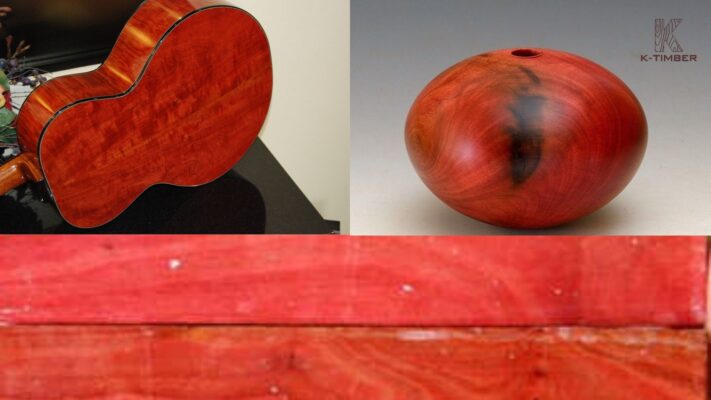
Color and Grain
The color of African Rosewood is the first thing that attracts attention. This wood has a color range from light yellow, reddish brown to dark red, creating a natural and warm beauty. African Rosewood grain is very beautiful, with clear, smooth lines and can have natural ripples or patterns, creating a luxurious and unique feeling. The color and grain of the wood often change when exposed to light, adding to the appeal and aesthetic value of products made from this wood.
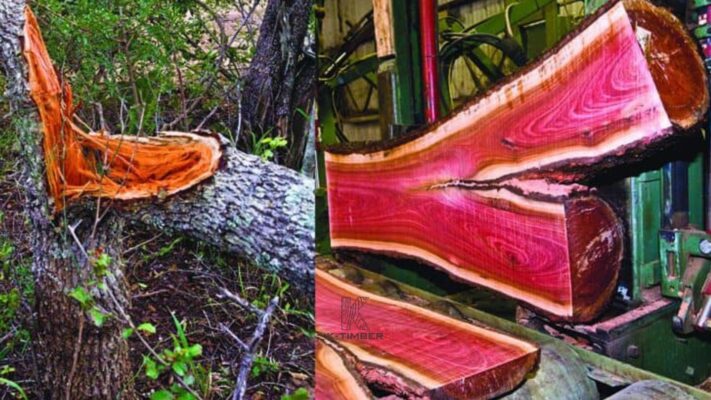
Durability and Mechanical Properties
African Rosewood is highly regarded for its durability and stability. The wood has a solid structure, with a high density, making it extremely resistant to the effects of time, termites, and insects. In particular, this wood also has good resistance to harsh climatic conditions, from humid environments to high temperatures, helping to maintain the quality of the product over a long period of time.
In addition, African Rosewood has a moderate Janka hardness of 3,230 lbf (14,370 N), making it easy to process but still strong enough to ensure sustainability. The physical properties of this wood include good resistance to wear, little warping or cracking when processed, helping artisans easily create highly sophisticated products without having to worry about deformation.
Scent and Feeling of Use
Another interesting feature of African Rosewood is its light and pleasant scent. When freshly sawn or processed, the wood often gives off a gentle fragrance, similar to the scent of precious woods such as rosewood or rosewood. This scent not only creates a pleasant feeling but also adds sensory value to products made from this type of wood.
Reasons Why African Rosewood Is So Expensive
Rosewood is one of the most exploited trees in the world (2.1 billion cubic meters per year, according to FBO data released in 2023), used for luxury furniture, musical instruments and rosewood essential oil, and over-exploitation and unplanned harvesting have brought the species to the brink of extinction (Countries such as Madagascar, Nigeria, Angola, etc. have even listed it on the Red List). The scarcity of this rosewood resource has led to skyrocketing prices that show no signs of slowing down.
2. Applications and Uses of African Rosewood
With outstanding aesthetic and physical characteristics, African Rosewood is widely used in many different fields, especially industries that require high aesthetics and long-term durability.
High-end Furniture Production
African Rosewood is an ideal material for the production of high-end furniture such as tables, chairs, cabinets, beds, and doors. Its natural color and wood grain help create products that are not only beautiful but also luxurious and classy. In particular, furniture made from African Rosewood often has a long life, is easy to preserve and can retain its original beauty for many years. Not only is it sustainable, furniture products made from this wood also bring a cozy, luxurious feeling to the living space.
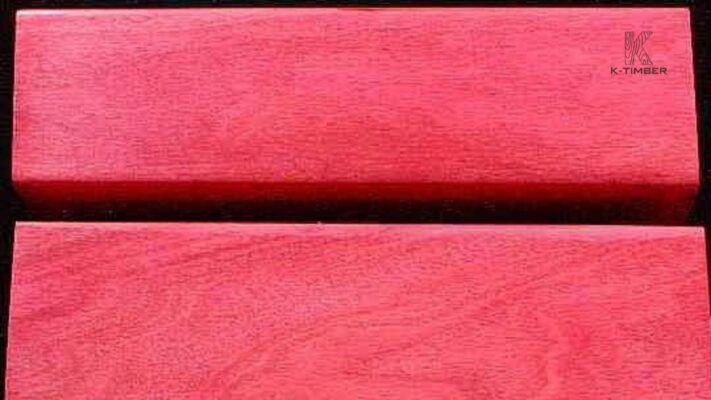
Musical Instrument Making
One of the prominent uses of African Rosewood is in the making of musical instruments, especially guitars, pianos, and violins. The wood has the ability to produce warm, deep, and resonant sounds, making it a top choice for luthiers. Each musical instrument made from African Rosewood has a distinctive timbre, providing a refined and emotional musical experience.
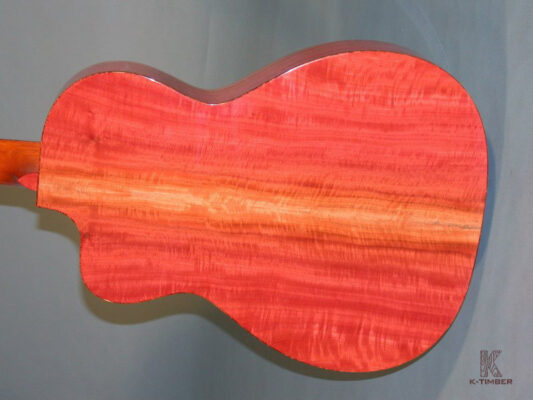
Crafts and Decorations
African Rosewood is also widely used in the field of handicrafts and decoration. Artisans often choose this type of wood to make interior decoration products, jewelry boxes, picture frames, and other works of art. Products made from African Rosewood are especially beautiful, durable for decades without damage or termites.
Applications in the Construction Industry
In addition, African Rosewood is also used in some high-end construction projects, especially places that require materials with high durability and good aesthetics such as wall panels, floors, and stairs. The ability to resist abrasion, good strength and natural beauty of this wood make it an ideal choice for luxury construction projects.
Read more: Cherry Wood: Properties, Characteristics & Uses
3. Illegal Logging and Its Consequences
Although African Rosewood has high economic value, over-exploitation and unplanned, unreasonable exploitation are causing serious problems, not only for the resource but also for the environment and society.
Illegal Logging
Due to its high economic value, African Rosewood has become a target for illegal logging. In many African countries, this is rampant, with uncontrolled logging, not only by businesses but also by individuals and smuggling groups. The wood is harvested in an unsustainable and unregulated manner, leading to the depletion of this valuable resource.
The consequences of illegal logging are not only the loss of valuable trees but also negative impacts on the environment, such as deforestation, reduction of natural forest areas, loss of biodiversity, and soil erosion. The tropical forests where African Rosewood grows are facing the risk of serious destruction, affecting the entire ecosystem of the region.
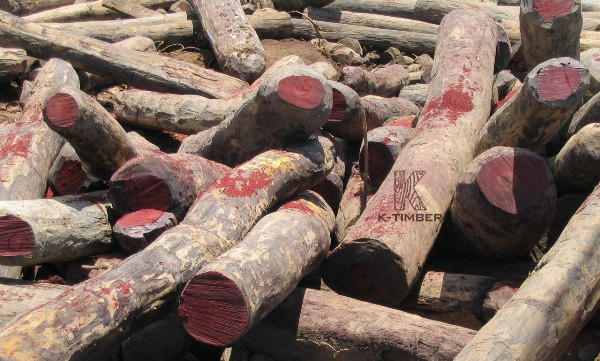
Impacts on Local Communities
Unsustainable logging of African Rosewood also has serious consequences for local communities. Many people depend on forests for their livelihoods, from harvesting non-timber forest products to farming. When forests are destroyed, their income and livelihoods are threatened, leading to poverty and social unrest.
In addition, illegal logging increases conflict within communities, as logging groups compete for resources and control. This not only destabilizes the security of the area, but also causes serious social consequences such as violence, migration and human trafficking.
4. Buy quality wood at affordable prices at K-Timber
The exploitation of African Rosewood can have a negative impact on the ecosystem and has extremely high risks of seriously affecting the environment. If you want to buy precious wood from Africa without affecting the ecosystem and the environment at competitive prices, contact us now.










